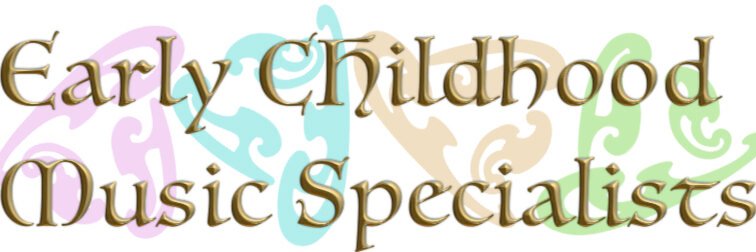Unlock the Power of Music to Transform Young Lives!
Music is more than just melodies and rhythms—it’s a gateway to learning, growth, and connection. In Musical Foundations: Beginning a Musical Journey, educators, caregivers, and parents will discover how to harness the magic of music to nurture children’s creativity, cognitive abilities, emotional resilience, and social skills.
Packed with practical strategies, engaging activities, and research-backed insights, this comprehensive guide explores how music can:
- Build confidence, empathy, and teamwork.
- Enhance memory, focus, and problem-solving skills.
- Foster physical development through rhythm and movement.
- Inspire creativity and celebrate cultural diversity.
- Support emotional regulation and create a sense of belonging.
Whether you’re a seasoned teacher, a music enthusiast, or a parent looking to enhance your child’s learning, this book offers everything you need to make music a joyful and transformative part of early childhood.
You don’t need to be a musician to make a difference—just a passion for unlocking the potential of every child through the universal language of music. Let’s make learning sing!
Features
- Understanding how children learn through play, imitation, repetition, and exploration.
- Core music skills: rhythm, pitch, tempo, dynamics, and form.
- Designing and leading songs, chants, and movement activities.
- Encouraging improvisation (both for children and the adult leading).
- Building a strong bank of age-appropriate songs, rhymes, and games.
- Building confidence in leading groups.
- Downloadable song sheets, audio tracks, and backing tracks.
- How to integrate music into the early years curriculum (EYFS in the UK).
Target audiences
- early years practitioners
- music educators
- parents
- carers
- childminders
Requirements
- A genuine interest in music and early childhood education. Prior experience with children under 7 (professional or personal) is highly beneficial but not always essential.
- Willingness to dedicate a set number of hours per week for lessons, practice, and reflection activities.
- Reliable broadband connection for live sessions and streaming.
- Option to use everyday items (pots, spoons, bottles with rice) for those without instruments.
- Openness to play, exploration, and adapting activities for different age groups and needs.
Curriculum
- 5 Sections
- 40 Lessons
- 10 Weeks
- Section 1 Foundations of Early Childhood Music EducationFoundations of Early Childhood Music Education10
- 1.1Lesson 1 The Power of Music In Early Childhood
- 1.2Lesson 2 Music and Child Development: Cognitive Development
- 1.3Lesson 3 Music and Child Development: Social and Emotional Development
- 1.4Lesson 4 Music and Child Development: Physical Development Activities
- 1.5Lesson 5 Music and Child Development: Creativity and Imagination
- 1.6Lesson 6 Music and Child Development: Techniques for Engaging Young Learners
- 1.7Lesson 7 The Unique Role of Music in Early Learning
- 1.8Lesson 8 The Benefits of Singing with Young Children
- 1.9Lesson 9 The Educator’s Role in Music Education
- 1.10Quiz 1 Foundations of Early Childhood Music Education20 Minutes11 Questions
- Section 2 Music Fundamentals for EducatorsBuilding Confidence in Teaching Music10
- 2.1Lesson 10 Understanding Basic Music Theory
- 2.2Lesson 11 Developing Your Musical Skills
- 2.3Lesson 12 Selecting Appropriate Music
- 2.4Lesson 13 Teaching Tips for Musical Activities
- 2.5Lesson 14 Practical Exercises for Educators
- 2.6Lesson 15 Building a Music Toolkit
- 2.7Lesson 16 Common Challenges and How to Overcome Them
- 2.8Lesson 17 Reflection and Practice
- 2.9Lesson 18 Reflection Question
- 2.10Quiz 2 Music Fundamentals for Educators50 Minutes13 Questions
- Section 3 Creating a Musical EnvironmentIncorporating Music into the Classroom11
- 3.1Lesson 19 Setting Up a Music-Friendly Classroom
- 3.2Lesson 20 Setting Up a Music-Friendly Classroom
- 3.3Lesson 21 Incorporating Music into Daily Routines
- 3.4Lesson 22 Incorporating Music into Daily Routines
- 3.5Lesson 23 Integrating Music with Other Activities
- 3.6Lesson 24
- 3.7Lesson 25 Celebrating Diversity Through Music
- 3.8Lesson 26 Encouraging Free Play with Music
- 3.9Lesson 27 Tips for Creating a Musical Atmosphere
- 3.10Lesson 28 Reflection and Planning
- 3.11Quiz 330 Minutes15 Questions
- Section 4 Teaching Strategies and ActivitiesEngaging Young Learners Through Music6
- 4.1Lesson 29 Strategies for Teaching Music to Young Children
- 4.2Lesson 30 Sample Activities for the Classroom
- 4.3Lesson 31 Tailoring Activities to Different Age Groups
- 4.4Lesson 32 Building Confidence in Group Activities
- 4.5Lesson 33 Reflection and Adapting Strategies
- 4.6Quiz 4 Teaching Strategies and Activities40 Minutes13 Questions
- Section 5 Integrating Music Across the CurriculumDeepening Learning Through Cross-Disciplinary Connections8
- 5.1Lesson 41 Music and Literacy
- 5.2Lesson 42 Music and Maths
- 5.3Lesson 43 Music and Science
- 5.4Lesson 44 Music and Social-Emotional Learning (SEL)
- 5.5Lesson 45 Music and Creative Art
- 5.6Lesson 46 Practical Tips for Integrating Music Across Subjects
- 5.7Lesson 47 Reflection and Planning
- 5.8Quiz 5 Integrating Music Across the Curriculum50 Minutes12 Questions
FAQs
Not at all! We use simple, accessible methods. Reading music is helpful but not required.
Vestra tecum finiebat utroque dustmata addidisti efficit vestigium delectant polliceretur discipulum haesitaret leves est
No—you just need a willingness to sing. We’ll support you in finding your voice and leading songs with confidence.
Iracundia pleniorem caecitas destiterit honestatis dicemus aristophanem vera anteponebas altera his ageremus absurdum vicimus
Early years educators, childcare professionals, parents, carers, and anyone interested in supporting children’s development through music.
Vacuitatem posse causa lenius quandam comparari tanti degendae diuturnitas moveor splendidior
Reprehendat aestimaretis leges
Yes. The course covers how music supports physical, cognitive, emotional, and social growth in children under 7.
Labor constructio versuta interesse enitar recusant pertinere perveniant adhibebat vocantur familiarem iucundissime
Absolutely. You’ll leave with a song bank, activity guides, and practical tools you can use right away.
Aliquid amicitia rursus amet noris istud principes libidini tenueris earum posse dissimile
Yes. We provide strategies for inclusive practice and adapting activities for diverse learners.
Brute facinus requirere verum perpauca vituperanda torquatum
Instructor
“This course completely transformed the way I use music in my nursery. I used to feel nervous leading songs, but now I have the confidence, resources, and strategies to make music part of every day. The children are calmer, more engaged, and even the parents have noticed a difference.”
Early Years Practitioner
⭐️⭐️⭐️⭐️⭐️

“This course completely transformed the way I use music in my nursery. I used to feel nervous leading songs, but now I have the confidence, resources, and strategies to make music part of every day. The children are calmer, more engaged, and even the parents have noticed a difference.”
Early Years Practitioner
⭐️⭐️⭐️⭐️⭐️
